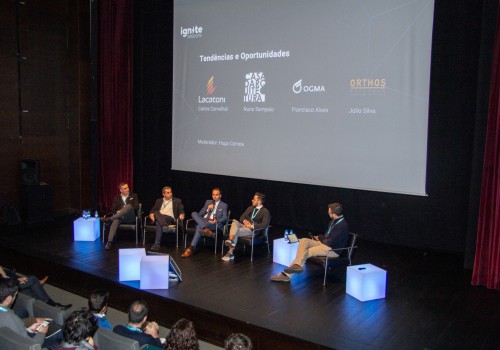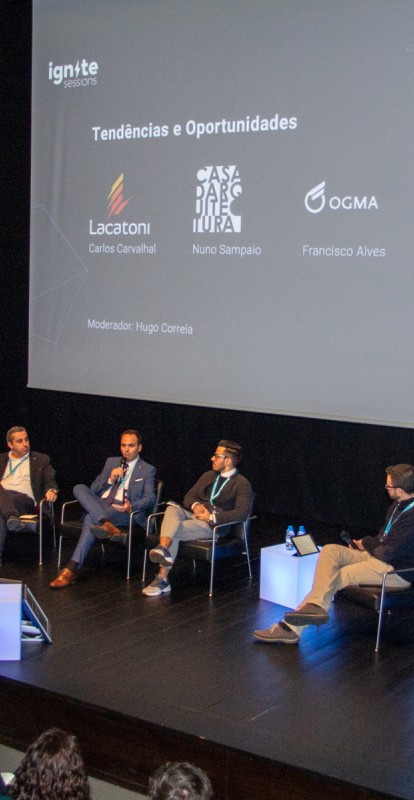
News
“3D printing technology is in borrowed days”
Fibrenamics discussed the technological future and innovation opportunities for the Portuguese business community in the second edition of Ignite Sessions.
The Cultural Center Vila Flor, in Guimarães, was filled this Wednesday, November 28, to hear about technology and new materials in the areas of Sport, Mobility, Health and Architecture. A debate between renowned companies on the national scene “set on fire” by specialists from the Fibrenamics Platform who presented ideas and innovations resulting from the research carried out by the Intelligence Unit of the International Platform of the University of Minho.
The Director of the Higher School of Design, Management and Production Technologies of Aveiro Norte, Martinho Oliveira, was one of the invited speakers and addressed the use of 3D in the future. According to the professor, most of the additive manufacturing technologies ended up mistakenly known as 3D printing while this, in particular, is just one of the tools and is already in the process of being used. “3D printing technology has its days numbered” concluded Martinho Oliveira, there are others that are making their way upwards, such as Robocasting or Direct Ink Writing (DIW), which uses a liquid base for the manufacture of products , on the other hand, there is also the Fused Filament Fabrication (FFF) that starts from a solid base. This type of equipment is also the most widespread, so the Professor points out that it is possibly the technology that has more space for development in the near future.
The main panel with Carlos Carvalhal, Co-founder of Lacatoni and football coach, Nuno Sampaio, Director of Casa da Arquitectura; Francisco Alves, Executive Director of Aircraft and Engines of OGMA - Indústria Aeronáutica de Portugal (Grupo Embraer) and Júlio Silva, Product Development Manager at Orthos XXI, resulted in a lively conversation between the stakeholders about what the best and most innovative is already being made in Portugal in the Sport, Health, Mobility and Architecture sectors.
For Carlos Carvalhal, the technological development in sports equipment has focused mainly on the increase and efficiency of movement, and the next step is expected to be in communication and data transmission. The trainer also stressed that the commercial side of the sector has also impacted the evolution of the equipment, with much of its design and technical characteristics dependent on the public's interest. “In the past, sports equipment, for example, was fair to the body, but as this adjustment made marketing difficult for the general public, it had to be adapted again”, he concludes.
In aviation, the biggest current challenge is in legislation. According to Francisco Alves, there are several technologies that are already in production to enable vertical take-offs and landings, with autonomies of about 300km and that promise to solve the traffic chaos in large cities at low cost. However, and without legislation, this increase in aircraft would be operating in an airspace without "roads or traffic lights".
With a strong practical and networking component, Ignites Sessions will continue to transfer knowledge from the University to companies until 2019 and are one of Fibrenamics' initiatives to support business innovation. The Platform already brings together more than 300 partners and was recently recognized by the European Union as a case study in this field.
